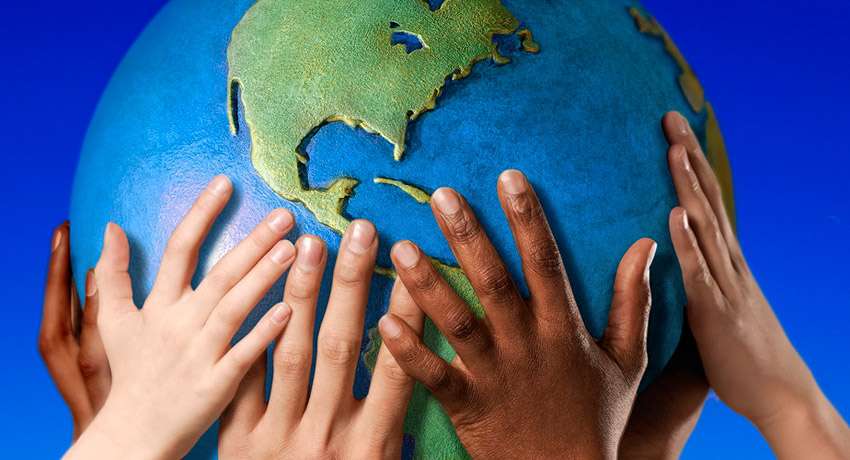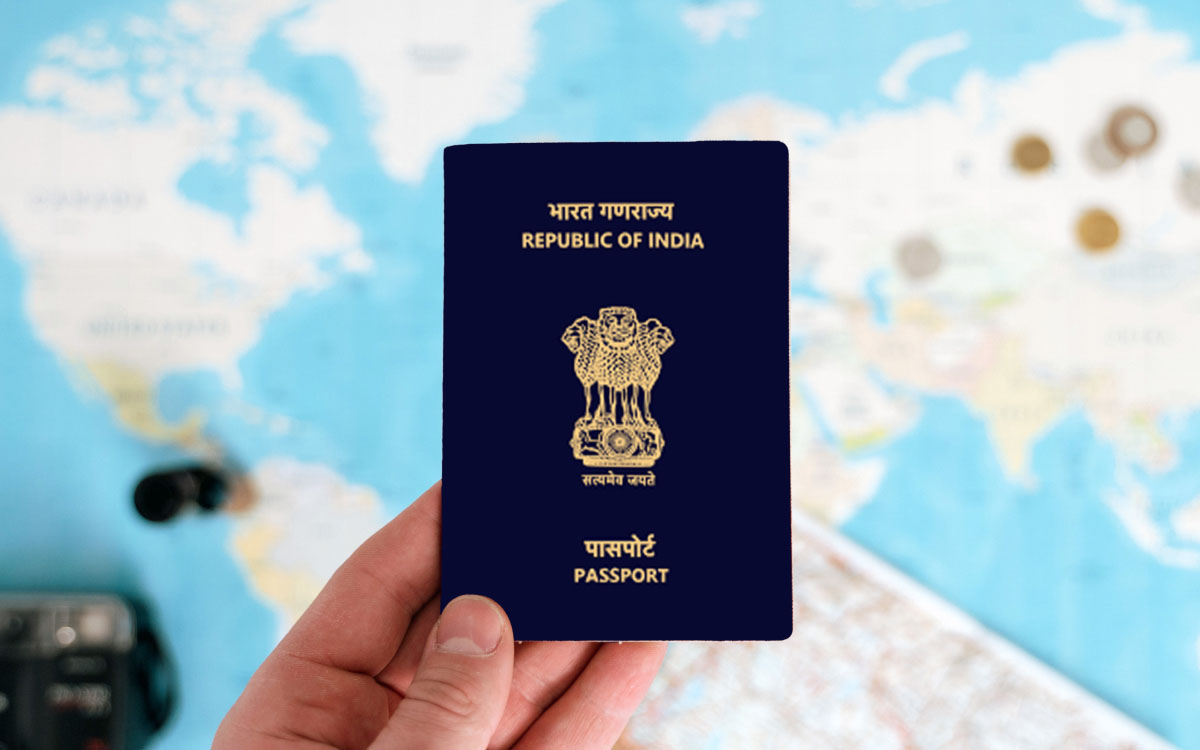Understanding Global Citizenship Today
Global citizenship is a dynamic and transformative approach to living that recognizes our shared humanity and collective responsibility for the planet. It transcends geographical, cultural, and political boundaries, urging individuals to see themselves as part of a global community working toward common goals like sustainability, equality, and peace. In 2025, this concept is more relevant than ever, as global challenges like climate change, social injustice, and economic disparities demand collaborative solutions. Global citizens are driven by empathy, cultural awareness, and a commitment to action, whether through small daily choices like reducing waste or larger efforts like advocating for human rights. By embracing this mindset, individuals can contribute to a world that is more just, inclusive, and sustainable, fostering a sense of unity in an increasingly interconnected era. This approach not only addresses pressing global issues but also empowers people to live with purpose, knowing their actions have a ripple effect across borders.
What Defines a Global Citizen?
A global citizen is someone who actively engages with the world, prioritizing values like compassion, inclusivity, and responsibility. They seek to understand diverse cultures, histories, and perspectives through education, travel, or dialogue, and they use this knowledge to make informed decisions. For example, a global citizen might choose fair-trade products to support ethical labor practices or volunteer for organizations addressing global poverty. They are proactive, recognizing that issues like climate change or inequality require collective action, and they collaborate across borders to drive change. This identity is not limited by nationality or background; it’s a mindset that anyone can adopt by committing to actions that benefit humanity and the planet. Global citizens are also lifelong learners, constantly seeking to expand their understanding of the world and their role in it.
Why Global Citizenship Is Relevant Now
In 2025, the urgency of global citizenship stems from the interconnected nature of modern challenges, from environmental crises to social inequalities. Climate change, for instance, affects ecosystems worldwide, while economic disparities exacerbate poverty in both developed and developing nations. Global citizenship provides a framework for addressing these issues collaboratively, encouraging individuals to think beyond local concerns and act with global impact in mind. It fosters a sense of shared purpose, uniting people across cultures to tackle problems like pandemics or migration through collective action. By embracing global citizenship, individuals can influence policies, support sustainable initiatives, and build resilient communities, ensuring a better future for all. This relevance is amplified by technology, which enables real-time engagement with global issues, making it easier than ever to contribute to meaningful change.
Historical Roots of Global Citizenship
The concept of global citizenship has deep historical roots, drawing from philosophical traditions like Stoicism, which emphasized universal human dignity, and Enlightenment ideas of shared humanity. The 20th century marked significant milestones, such as the establishment of the Universal Declaration of Human Rights in 1948, which formalized the idea of global responsibilities. The rise of international organizations like the United Nations and movements like the Sustainable Development Goals (SDGs) further shaped global citizenship by providing frameworks for collective action. Globalization and digital connectivity have accelerated its evolution, enabling individuals to engage with global issues instantly through platforms like social media or virtual volunteering. Today, global citizenship reflects a blend of historical ideals and modern realities, empowering people to act as stewards of a shared world.
Key Values Driving Global Citizenship
Global citizenship is anchored in core values that inspire individuals to act with purpose and compassion. These values—interdependence, empathy, and ethical responsibility—form the foundation of a mindset that prioritizes the well-being of people and the planet. By internalizing these principles, global citizens become catalysts for change, fostering a world that is more equitable, sustainable, and interconnected.
Embracing Global Interdependence
Interdependence is the understanding that our actions, no matter how small, have global consequences. For example, choosing to reduce plastic use in one country can decrease ocean pollution worldwide, while supporting fair-trade products uplifts communities in distant regions. This value encourages global citizens to make conscious choices, such as opting for renewable energy or advocating for policies that address global challenges like deforestation. By recognizing the interconnectedness of economies, environments, and societies, individuals can align their actions with broader goals, creating a ripple effect of positive change. Interdependence also fosters collaboration, as global citizens work together across borders to solve problems that no single nation can tackle alone.
Cultivating Empathy Across Cultures
Empathy is the ability to understand and share the experiences of others, regardless of their background. For global citizens, this means engaging with diverse cultures through activities like cultural exchanges, language learning, or attending international festivals. By fostering respect for different traditions and perspectives, empathy breaks down stereotypes and builds bridges between communities. For instance, participating in a virtual dialogue with people from another country can deepen understanding of their challenges, such as access to education or healthcare. This value is essential for promoting peace and cooperation, as it encourages global citizens to approach differences with curiosity and compassion, creating a foundation for mutual respect and global solidarity.
Commitment to Ethical Responsibility
Ethical responsibility drives global citizens to take accountability for addressing global issues like poverty, climate change, and human rights violations. This involves making choices that align with fairness and sustainability, such as boycotting companies with unethical labor practices or supporting organizations that provide clean water to underserved communities. It also means staying informed about global challenges and using that knowledge to advocate for change, whether through voting for equitable policies or participating in grassroots movements. Ethical responsibility empowers individuals to see themselves as stewards of the planet, recognizing that their actions contribute to a larger vision of global well-being. By living these values, global citizens inspire others to adopt similar practices, amplifying their impact.
The Impact of Global Citizenship

Global citizenship has far-reaching effects, transforming individuals, communities, and the world at large. By embracing this mindset, people contribute to solving global challenges, strengthening social bonds, and promoting sustainable practices that ensure a brighter future for all.
Solving Global Challenges Together
Global citizenship fosters collaboration on issues that transcend borders, such as climate change, global health crises, and inequality. For example, supporting international initiatives like the Paris Climate Accord or participating in global health campaigns can drive systemic change. Global citizens contribute by joining movements, donating to organizations, or advocating for policies that address these challenges. By working together, they amplify their impact, ensuring that solutions are inclusive and effective. This collective approach is critical in a world where no single nation can solve complex issues alone, making global citizenship a vital force for progress.
Strengthening Community Bonds
Global citizens strengthen communities by fostering connection and collaboration at both local and global levels. For instance, organizing a neighborhood clean-up can inspire similar efforts worldwide, while supporting refugee integration programs builds inclusive communities. These actions create a sense of shared purpose, encouraging people to work together toward common goals. By engaging in community-driven initiatives, global citizens also inspire others to act, creating a ripple effect that strengthens social ties and promotes unity. This dual impact—local and global—ensures that global citizenship benefits communities at every scale.
Promoting Sustainable Futures
Sustainability is a cornerstone of global citizenship, as it ensures the planet’s resources are preserved for future generations. Global citizens promote this through actions like reducing energy consumption, supporting conservation efforts, or advocating for policies that protect biodiversity. For example, choosing to bike instead of drive reduces carbon emissions, while supporting organizations like WWF helps preserve ecosystems. These efforts align with global goals to combat climate change and promote sustainable development, ensuring a healthier planet for all. By prioritizing sustainability, global citizens lead by example, encouraging others to adopt eco-friendly practices.
How to Live as a Global Citizen
Living as a global citizen is about integrating purposeful actions into everyday life. From sustainable habits to advocacy, these practices empower individuals to make a meaningful impact on a global scale, inspiring others to join the movement.
Adopting Sustainable Daily Habits
Sustainable habits are a practical way to embody global citizenship. Simple actions—like using reusable water bottles, reducing food waste, or switching to energy-efficient appliances—can significantly lower one’s environmental footprint. Choosing plant-based meals or supporting local farmers who prioritize sustainable practices also aligns with global goals. These habits are accessible to everyone and demonstrate how small changes can contribute to larger efforts, such as reducing global carbon emissions or preserving natural resources. By modeling these behaviors, global citizens encourage their communities to adopt similar practices, creating a collective impact.
Engaging in Global Advocacy
Advocacy is a powerful tool for global citizens, allowing them to influence systems and policies on a global scale. This can involve joining campaigns, signing petitions, or using platforms like X to raise awareness about issues like gender equality or climate justice. For example, sharing stories of communities affected by environmental disasters can inspire action and support for relief efforts. Global citizens also advocate by voting for leaders who prioritize international cooperation or by participating in protests to demand change. Through advocacy, they amplify marginalized voices and drive systemic progress toward a more equitable world.
Building Cross-Cultural Connections
Building connections across cultures is a hallmark of global citizenship, fostering mutual understanding and collaboration. This can involve participating in cultural exchange programs, learning a new language, or engaging in online communities with people from different backgrounds. For instance, attending a virtual cultural festival or joining a global book club can deepen appreciation for diverse perspectives. These interactions break down barriers, reduce prejudice, and create a sense of global solidarity. By actively seeking cross-cultural connections, global citizens build networks that support collective action and promote peace.
Barriers to Global Citizenship
Global citizenship faces significant challenges that can limit its adoption and impact. Addressing these barriers requires education, collaboration, and a commitment to inclusivity to ensure everyone can participate in this global movement.
Overcoming Cultural Misunderstandings
Cultural misunderstandings, often rooted in stereotypes or lack of exposure, can hinder global citizenship by creating divisions. Overcoming these requires education, such as learning about global histories or participating in cultural immersion programs. For example, traveling to a new country or engaging in dialogue with diverse communities can dispel myths and build empathy. Global citizens must actively challenge biases and promote open communication to foster understanding and unity across cultures, ensuring that global citizenship is inclusive and accessible to all.
Tackling Economic Disparities
Economic inequalities restrict access to education, technology, and opportunities, limiting who can fully engage in global citizenship. For instance, individuals in low-income regions may lack the resources to participate in global initiatives or access information about sustainability. Addressing this involves supporting programs that provide scholarships, internet access, or vocational training to underserved communities. By advocating for equitable policies and supporting organizations that bridge economic gaps, global citizens can ensure that everyone has the tools to contribute to global goals.
Countering Isolationist Policies
Isolationist policies and rising nationalism can undermine global cooperation by prioritizing local interests over shared challenges. Global citizens must advocate for policies that promote international collaboration, such as trade agreements that prioritize sustainability or humanitarian aid programs. Engaging in diplomacy, supporting global organizations, and raising awareness about the benefits of cooperation can counter these trends. By fostering a vision of shared responsibility, global citizens help overcome political barriers and promote a more unified world.
Benefits of Being a Global Citizen
Embracing global citizenship offers profound personal and societal benefits, from personal growth to global progress. These rewards highlight the value of living with a global perspective and inspire others to join the movement.
Personal Enrichment Through Diversity
Engaging with diverse cultures and global issues enriches personal growth by broadening perspectives and fostering empathy. For example, learning about traditional practices from another country or participating in a global volunteer project can deepen one’s understanding of the world. These experiences enhance creativity, encourage critical thinking, and build a sense of connection to humanity. By embracing diversity, global citizens lead more fulfilling lives and inspire others to value inclusivity.
Driving Global Progress
Global citizens drive progress by supporting initiatives that address poverty, education, and environmental challenges. Whether through donating to organizations like Oxfam or advocating for policies that promote clean energy, their efforts contribute to systemic change. By collaborating across borders, global citizens amplify their impact, helping to achieve global goals like the SDGs. This collective action ensures that progress is inclusive and sustainable, benefiting communities worldwide.
Fostering Unity and Peace
Global citizenship promotes peace by fostering understanding and cooperation across cultures. By valuing diversity and engaging in dialogue, global citizens reduce conflict and build stronger communities. For example, supporting peace-building initiatives or participating in intercultural programs can create lasting bonds between nations. This focus on unity helps create a more harmonious world, where differences are celebrated rather than divisive.
Global Citizenship and World Goals

Global citizenship aligns closely with international frameworks like the United Nations’ Sustainable Development Goals (SDGs), providing a roadmap for addressing global challenges. By supporting these goals, global citizens contribute to a vision of a world free from poverty, inequality, and environmental harm.
Supporting UN Sustainable Development Goals
The SDGs, launched in 2015, outline 17 ambitious goals to transform the world by 2030, including ending hunger, ensuring quality education, and combating climate change. Global citizens support these goals by participating in initiatives like clean energy projects, supporting education for girls, or advocating for policies that reduce inequality. By aligning their actions with the SDGs, they contribute to a global framework that prioritizes sustainability and equity, ensuring a better future for all.
Addressing Poverty and Social Equity
Poverty and inequality remain significant barriers to global progress, and global citizens play a vital role in addressing them. This can involve donating to charities that provide food or healthcare, supporting fair-trade businesses, or advocating for policies that ensure equal opportunities. For example, supporting organizations like UNICEF helps provide resources to underserved communities. By prioritizing equity, global citizens help create a world where everyone has access to basic needs and opportunities.
Advancing Environmental Stewardship
Environmental stewardship is a core focus of global citizenship, as it ensures the planet’s sustainability for future generations. Global citizens contribute by adopting eco-friendly habits, such as reducing waste, conserving water, or supporting reforestation efforts. They also advocate for policies that protect ecosystems, such as those promoted by organizations like Greenpeace. These actions align with SDG goals to combat climate change and preserve biodiversity, creating a healthier planet.
Becoming a Global Citizen in 2025
Becoming a global citizen is an accessible journey that starts with intentional actions and a commitment to learning. By integrating global awareness into daily life, anyone can contribute to a more just and sustainable world.
Educating Yourself on Global Issues
Staying informed about global challenges is the foundation of global citizenship. Reading reliable sources, watching documentaries, or following organizations on platforms like X provides insights into issues like climate change or human rights. For example, learning about the impact of deforestation can inspire actions like supporting conservation efforts. Education empowers individuals to make informed decisions and engage meaningfully with global challenges, fostering a sense of responsibility.
Participating in Global Communities
Engaging with global communities—through online forums, local organizations, or international networks—builds connections and drives collective action. Joining groups like Global Citizen or participating in webinars about global issues fosters a sense of shared purpose. These interactions allow global citizens to share ideas, support causes, and collaborate on solutions, creating a network of change-makers committed to global progress.
Making Ethical Consumer Choices
Ethical consumption is a practical way to live as a global citizen. Choosing products that support sustainability and fair labor—such as fair-trade coffee or clothing from ethical brands—promotes global equity. Reducing plastic use, conserving energy, or supporting local businesses with sustainable practices also aligns with global citizenship. These choices not only reduce environmental harm but also encourage companies to prioritize ethical practices, creating a broader impact.
The Future of Global Citizenship
The future of global citizenship is full of potential, driven by emerging trends and technologies that enhance global engagement. As the world evolves, global citizens will play a pivotal role in shaping a more connected and sustainable future.
Technology’s Role in Global Engagement
Technology is transforming global citizenship by enabling instant communication and collaboration. Social media, virtual reality, and online platforms allow individuals to connect with global communities, share ideas, and advocate for change. For example, virtual conferences on climate action or online campaigns through organizations like 350.org foster collective solutions. Technology democratizes access to global citizenship, empowering more people to participate in creating a better world.
Youth as Drivers of Change
Young people are leading the charge in global citizenship, using their passion and creativity to address issues like climate change and social justice. Movements like Fridays for Future demonstrate the power of youth activism in driving global change. By engaging in education, advocacy, and innovation, young global citizens are shaping a future that prioritizes sustainability and equity, inspiring people of all ages to act.
Vision for Global Citizenship in 2030
By 2030, global citizenship is likely to be a cornerstone of education, workplaces, and policymaking. Schools will increasingly teach global competence, while businesses adopt sustainable practices as standard. Digital tools will further enable participation, connecting people across borders to address challenges like climate change or inequality. As global issues intensify, global citizenship will remain a vital force, empowering individuals to build a resilient, equitable, and interconnected world.










